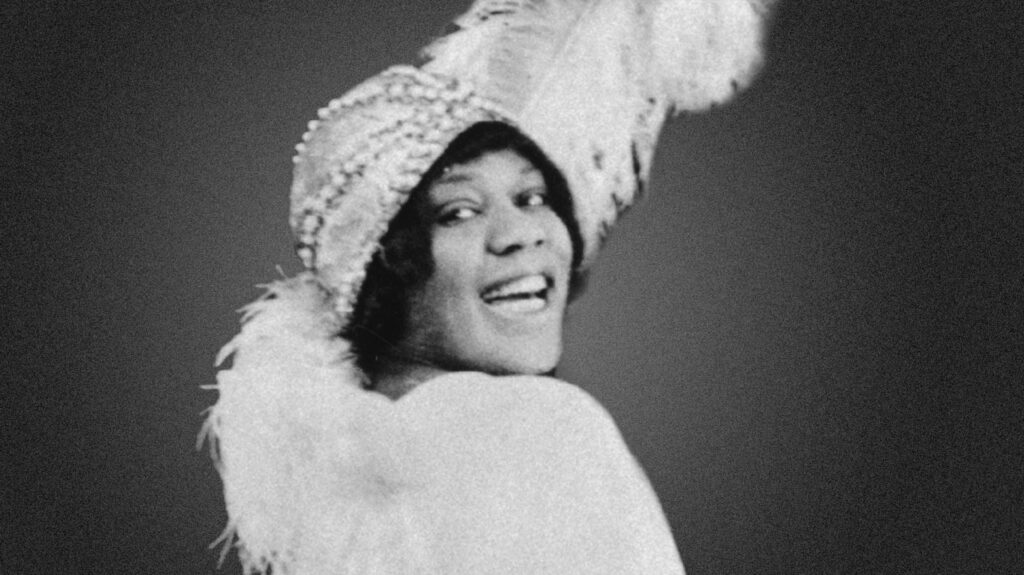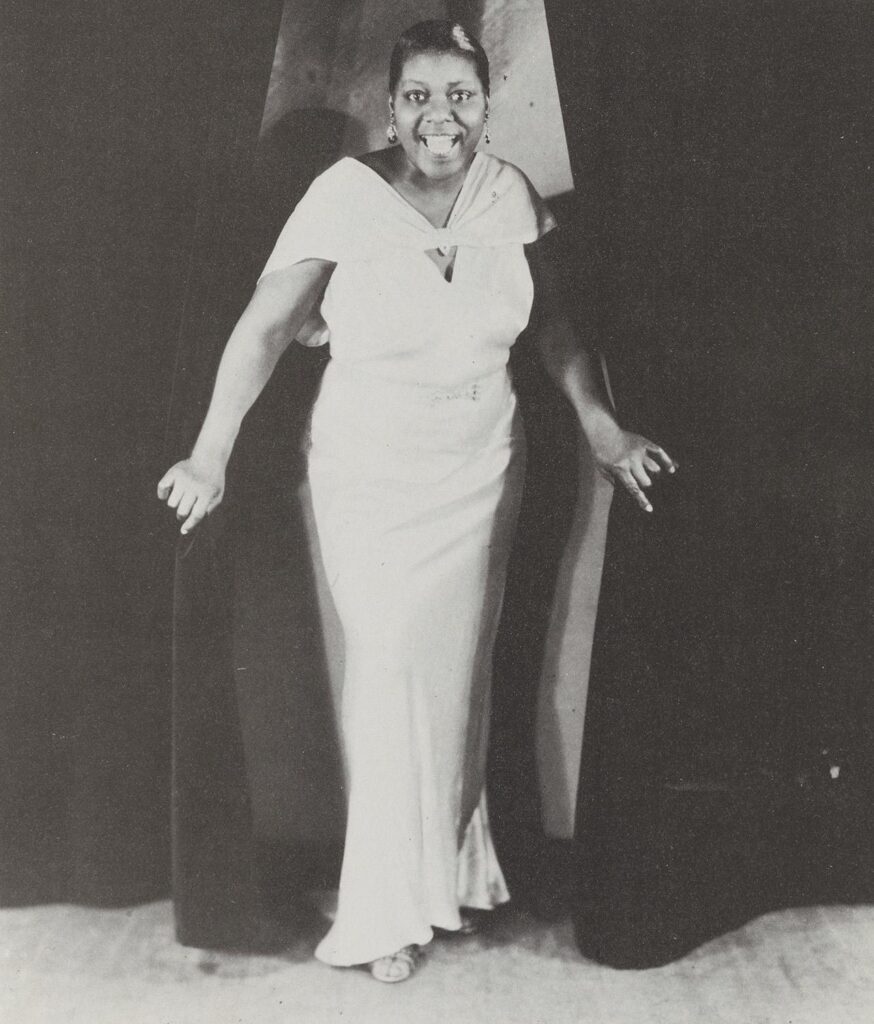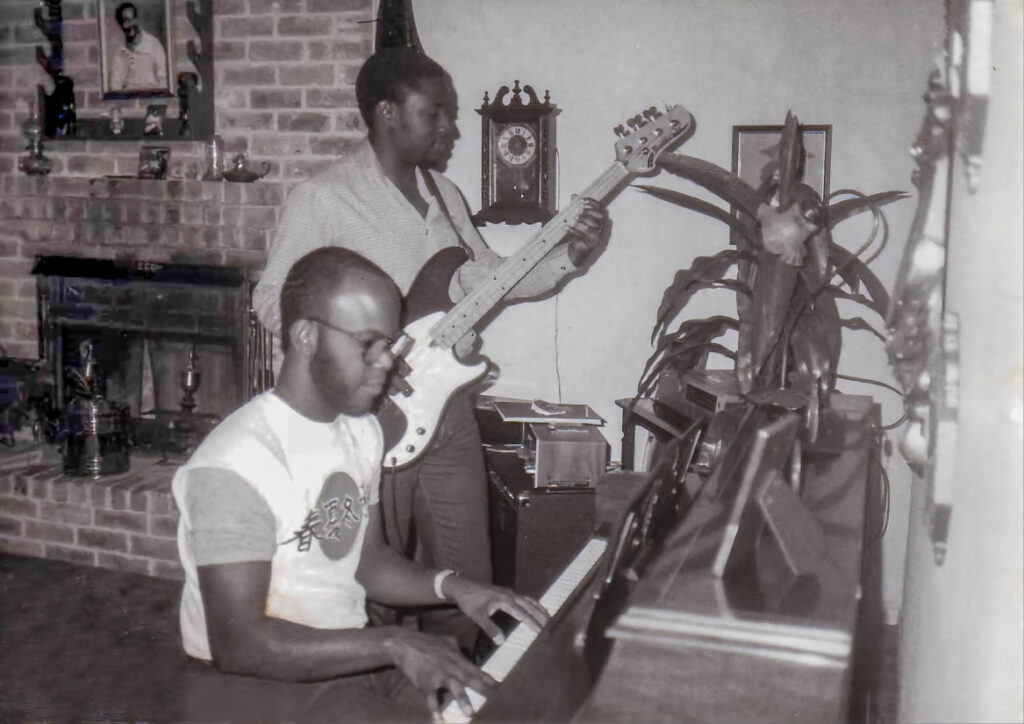Bessie Smith The “Empress of the Blues”
Written by Sorraya Gonzales on September 12, 2023
Bessie Smith has paved the way for Jazz and Rock n’ Roll and has inspired stars such as Janis Joplin and Norah Jones. From Tennessee, the African-American singer became the voice of the 1920’s. With songs of heartbreak, struggle, and sorrow, Smith carried the Jazz Renaissance. Nicknamed the “Empress of the Blues,” her soulful vocals roared through old-school recordings.
Not only did she inspire future artists to demonstrate their vulnerability through their vocals. Smith tracks help aid my sorrows during the pandemic. I found comfort in the singer’s voice in various compilation albums and Spotify suggestions. The raw attitude Smith carried throughout her 1920s recording helped me through my junior year of high school and now my sophomore year of college. Although her voice represented the generation under prohibition, her lyricism correlates to the modern listener. With Smith’s career spanning a couple of years, it takes time to understand her legacy. Yet, as an avid listener, I have gathered five songs from Smith that I consider some of her best work.

1. Nobody Knows You When You’re Down And Out
Initially written in 1923 by blues performer Jimmie Cox, the songs describe a Prohibition-era individual whose drinking has led them into a depressive episode. The lyrics paint a picture of the sorrow brought by prohibition. It was the first track I heard by Smith, and the second I heard her opening line, I cherished both the song and her music.
Once, I lived the life of a millionaire
Nobody Knows When You’re Down and Out Bessie Smith
Spending my money, I didn’t care
I carried my friends out for a good time
Buying bootleg liquor, champagne, and wine
When I began to fall so low
I didn’t have a friend and no place to go
In 1929, Bessie Smith recorded this blues standard for Columbia Records; her strong vocals echoed the track’s sorrow, bringing the song and her voice into stardom. The record fully expresses Smith’s ability to bring a story to life and feel the hurt and suffering of that era. The strong vocals and instrumentals make it the perfect song to introduce Smith’s discography. Although the track is almost 100 years old, her voice overrides the limited technology and allows listeners to enjoy the tune as if it isn’t a 20th-century recording.
2. Downhearted Blues
The blues standard, written by Alberta Hunter, depicts the timeless tale of heartbreak. With a soft piano instrumental, a simple lysis, Smith carries the tune with her echoing vocals. The opening lines of
Gee, but it’s hard to love someone
Downhearted Blues by Bessie Smith
When that someone don’t love you
I’m so disgusted, heartbroken too
I’ve got those downhearted blues
These lines help me love the 1923 recording done by Bessie Smith. Smith’s raw and vulnerable voice comforts one’s achy heart with every listen. Despite the recording reaching its 100th anniversary, it is the perfect song after a breakup, no matter which generation.
3. Baby Won’t You Please Come Home
Another 1923 recording, this simple ballad about wanting a lover to return, astounds through the piano instrumental. The lonesome lyrics performed by Smith soothe one longing for a past love. Recently, I fell for this song because I often crave a faded love to return. The denial of losing someone and bargaining for their return depicts an accurate grief process. With lines such as
I’ve got the blues, I feel so lonely
I’ll give the world if I could only‘Cause when you’re gone
Baby Won’t You Please Come Home by Bessie Smith
I’m worried all day long
Baby won’t you please come home
The Jazz standard, composed by Charles Warfield and Clarence Williams, brought Smith on the chart for four consecutive weeks. It remains an infamous recording for the song and Smith, making it a go-to listen in Smith’s discography.
4. Careless Love (take 1)
Another track that I have taken a liking to recently, the short song, depicts how heartbreak can affect a person. These lyrics help me remember that I am not alone in my grief and that many others relate to love’s strong presence in ones mind.
Love, oh love, oh careless love
Careless Love by Bessie Smith
You fly through my head like wine
You’ve wrecked the life of a many poor girl
And you nearly spoiled this life of mine
While not the most popular among Smith’s discography, it remains an asset to the soundtrack of heartbreak. With Smith’s low register and somber tone, the song depicts how love can lead to destruction. Although the song’s origins remain unknown, it remains a masterpiece for many people to hear its wise words about love.

Smith defines the era before the great depression, yet her music foreshadows the turn America will take post the golden age of Jazz. While she remains a depiction of the people of her generation, her art has become timeless due to being a true expression of sorrow. Being a vulnerable musician has allowed her to be an influential aspect of rock and Roll and be one of my favorite vocalists of all time.





